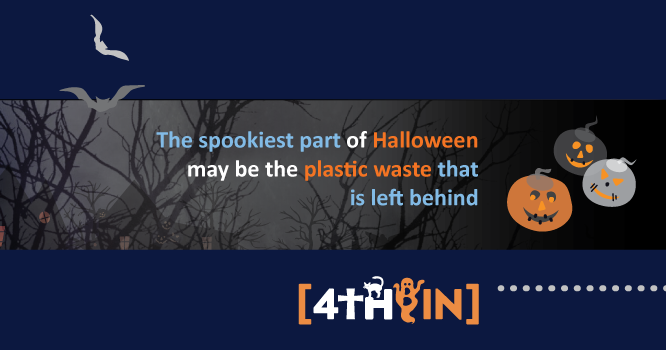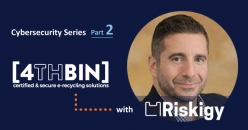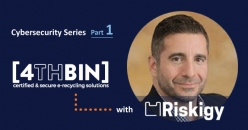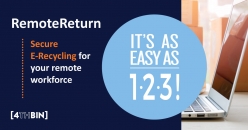Happy Halloween!
the spookiest part of Halloween may be the plastic waste that is left behind
To some, the spookiest part of Halloween may be the ghosts or vampires, but to us, it’s the plastic waste that is left behind. Nearly 2,000 tonnes of plastic waste are generated yearly from Halloween scraps, the equivalent of 83 million water bottles. Similar to electronic waste, the scraps that are left behind from Halloween will end up in a landfill - posing major hazards to the environment and humanity.
From festive food packaging to mass-produced decorations, to the plastic used for Halloween costumes, the amount of waste produced from this holiday is ghoulish. The remnants of Halloween will be diverted to a landfill where plastics make up nearly 20% of all municipal solid waste. Along with the 50 million metric tons of e-waste that are produced worldwide yearly, it’s essential to do your part in preserving our planet. The good news is there are many ways to reduce, reuse, or recycle these sinister waste streams.

Avoid plastic
Aim to buy sweets, treats, and decorations that utilize sustainable materials such cardboard, cloth, metal, waste paper, and wood. These materials won’t come back to haunt you when it’s time to dispose of them!
Reuse what you already have
With most costumes being made from unsustainable materials such as conventional cotton and polyester, you’re better off creating your own! Going through your closet and getting creative with what you already have is not only fun, it’s also great for the environment.
Make your own treats
Instead of indulging in countless individually wrapped candies, try making your own treats at home! From candy apples to pumpkin pie, there is a homemade Halloween treat for everyone!
While Halloween is only one day out of the year, its ecological footprint is permanent. Having a Green Halloween is just the start of making a big impact. Implementing sustainability efforts into all areas of your day-to-day life is the best way to do your part in eliminating potential threats to our environment.
Electronic waste and plastic waste are both leading sources of a growing global landfill crisis. E-waste continues to lead as the fastest growing waste stream, accounting for more than 70% of overall waste in the United States. Along with helping our clients recycle over 10 million pounds of e-waste, we believe in doing things the right way - responsibly and sustainably. At 4THBIN, you could feel confident in knowing that your e-waste is sustainably and legally recycled.
We hope that our tips will make this Halloween less frightening!



![4THBIN [News] Q&A with Justin Shnayder 4THBIN [News] Erasing Ewaste Justin Shnayder](/sites/default/files/styles/max_325x325/public/news/2021-02/4-News-Erasing-Ewaste-JS_1.jpg?itok=q5TFMDSB)




